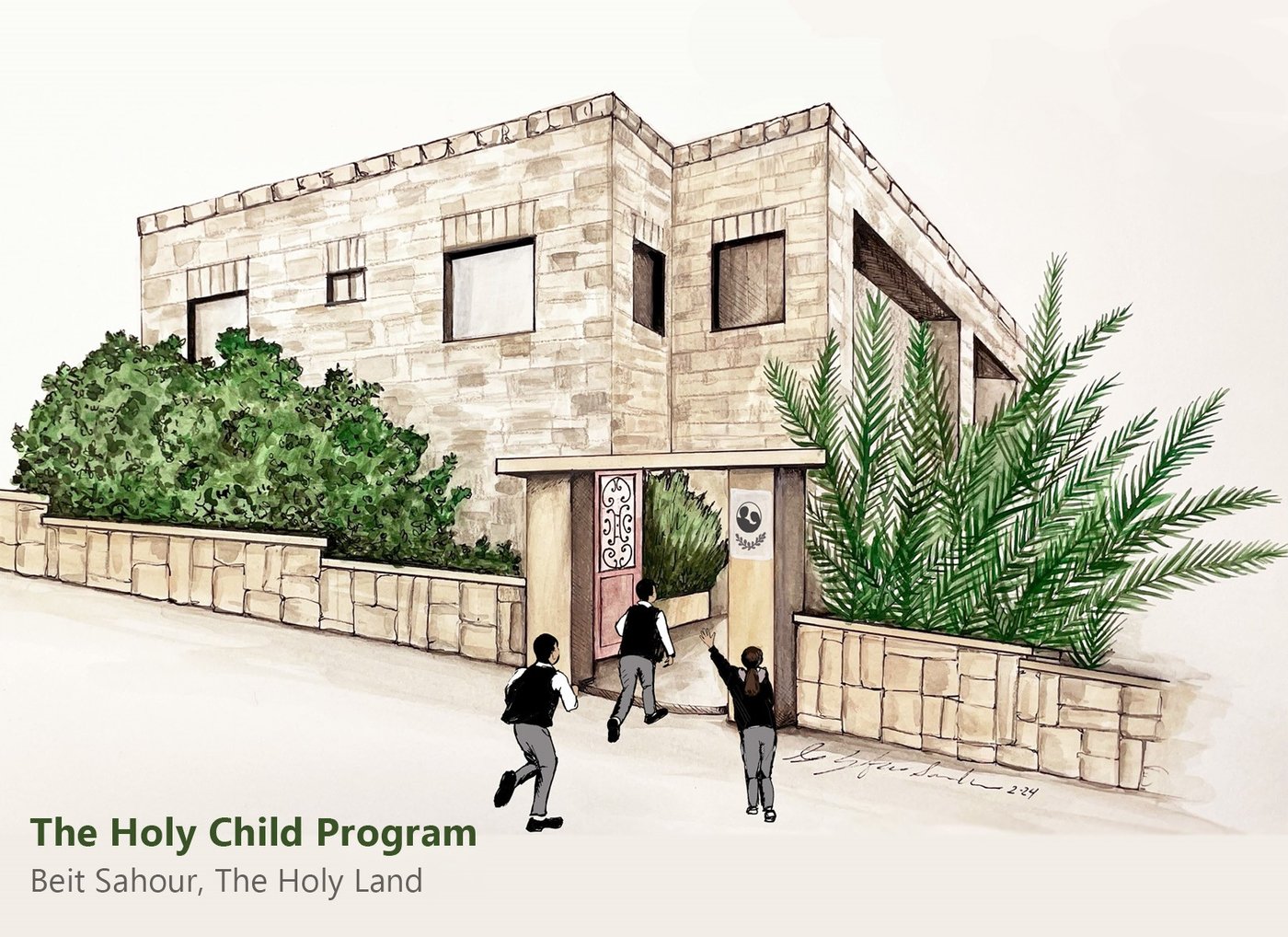SHORELINE – Across the world, in the place where tradition says the angels announced Christ’s birth, two local parishioners have deep connections to a Catholic school serving traumatized Christian and Muslim children.
Diane Rzegocki and Cathy Goodrich — close friends and members of St. Luke Parish in Shoreline — are key board members for the Holy Child Program, founded in 1995 by the Franciscan Sisters of the Eucharist.
“I have done more praying to the Holy Spirit since we’ve been involved in this and I feel … if it’s going to work, the Holy Spirit will lead us,” said Rzegocki (pronounced Zhe-gut-ski), who is board president and grant writer.
The women (and their husbands Jim Rzegocki and Leigh Goodrich) are apprentices of the Franciscan sisters, which means they are committed to living Franciscan spirituality and values as laypeople. And they’re family — Rzegocki’s son, Francis, is married to Goodrich’s daughter, Abby.
The two friends have been focused for years on supporting, improving and expanding the Holy Child Program, a therapeutic, alternative education school for children ages 5-15 located in Beit Sahour, near Bethlehem in the occupied West Bank.
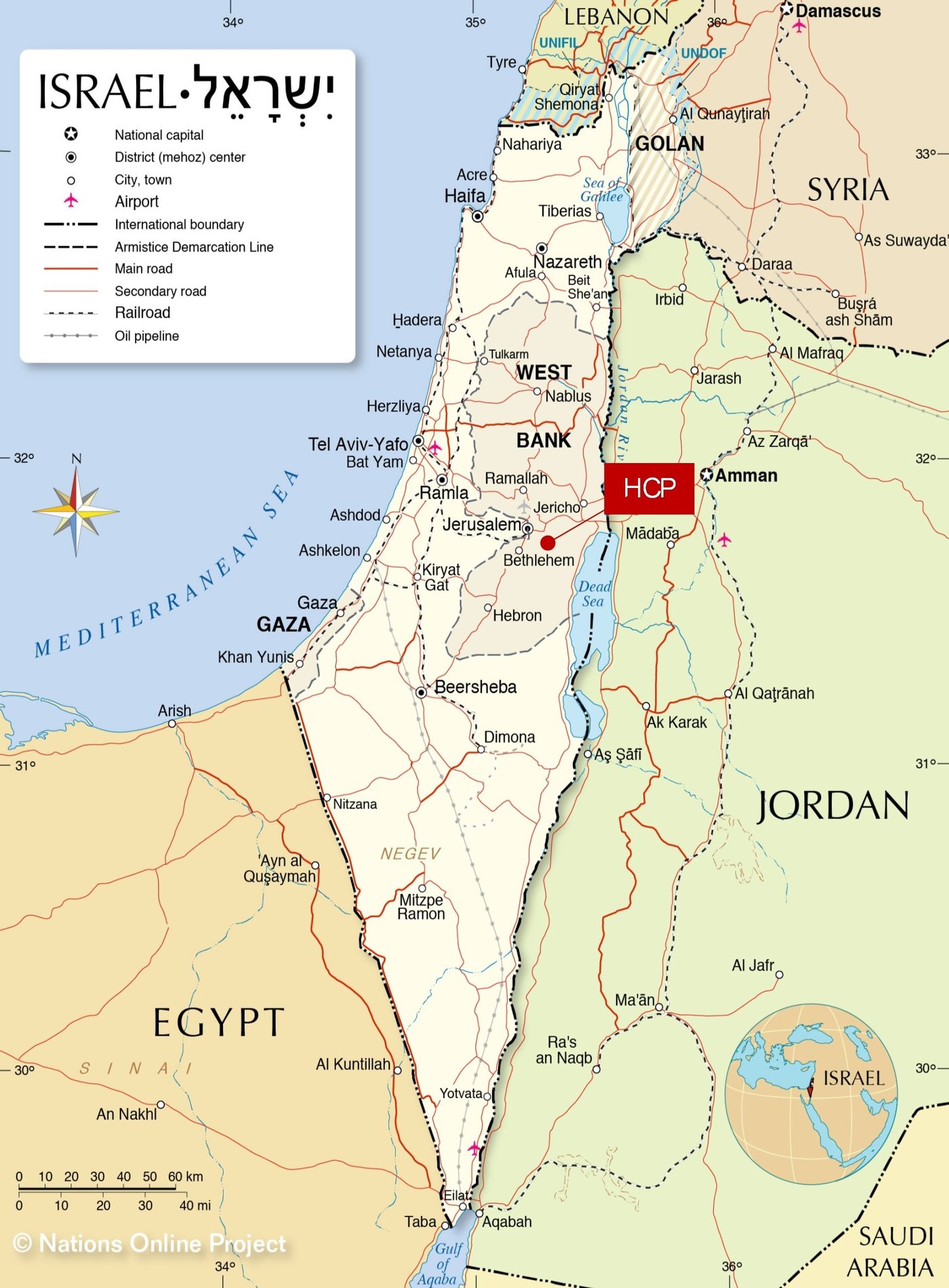
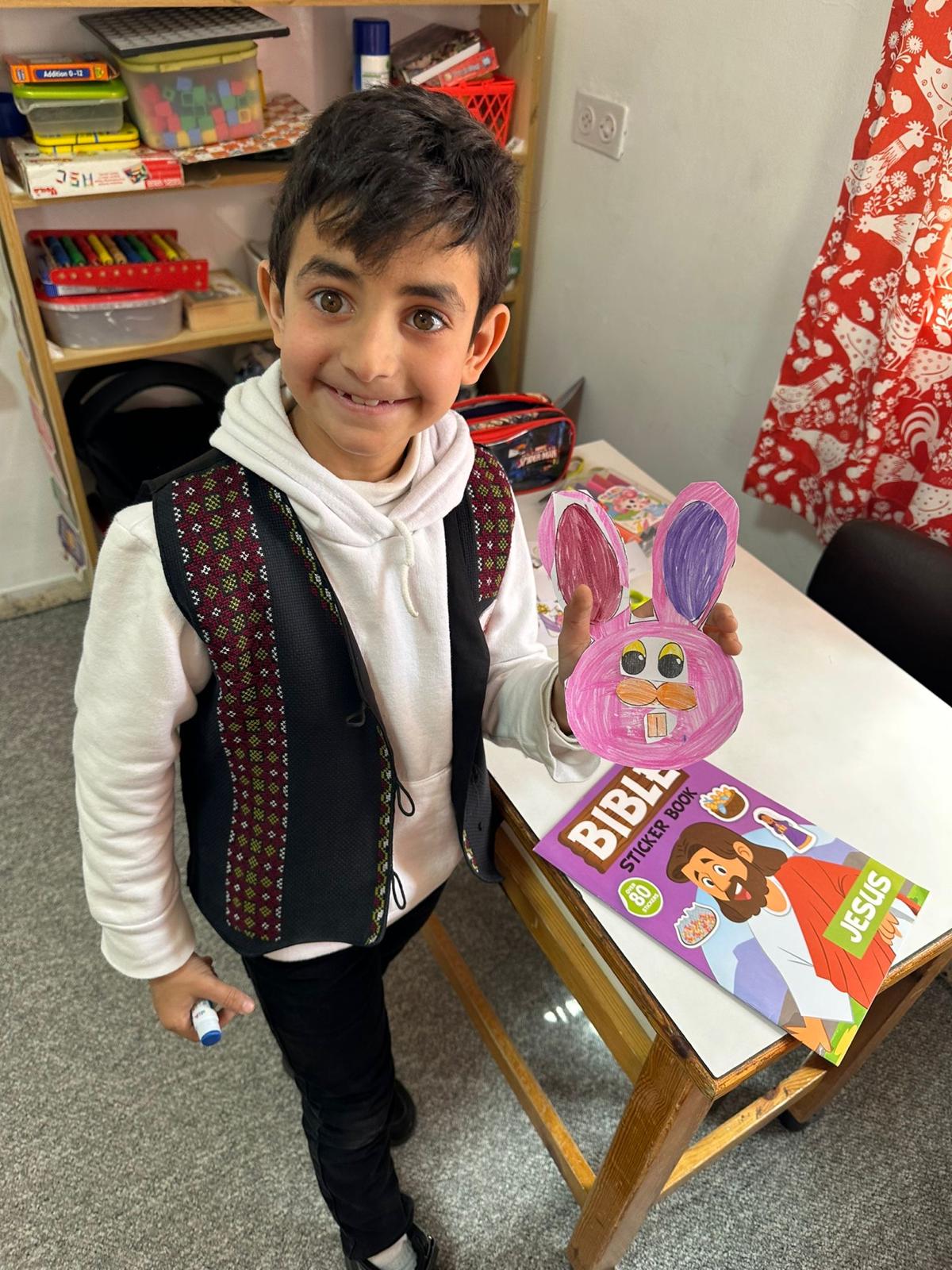
For more than a decade, Rzegocki spent nine months each year in the Holy Land, donating her time, professional expertise and money to help the program. Rzegocki’s husband, a former classroom educator, also got involved, helping with teacher evaluations, coaching and curriculum.
“Arabic culture is very much a side-by-side culture,” Rzegocki said. “You have to be there and live with them and do it every day” for the effort to be sustainable, she explained.
After a break because of the COVID pandemic, Rzegocki and her husband have been back to the Holy Child Program a few times, and were there when Hamas attacked Israel on Oct. 7, 2023. The couple were able to get out of the country fairly quickly, but with many twists and turns and “a lot of blessings from the Holy Spirit,” she said.
Visits from local parishioners
“Hope through healing” is the mission of the Holy Child Program, started by the Franciscan sisters in response to requests from parents whose children were suffering psychological distress due to the Palestinian uprisings (Intifada) in the West Bank from 1987-93.
Today, the school is at capacity, serving 35 children who are Christian and Muslim. (Under Israeli law, Jewish students in the West Bank are not allowed to attend schools outside the Israeli settlements, Rzegocki explained.)
Students are enrolled in the Holy Child Program for two to three years; 96% of the program’s graduates continue their education in government or private schools or enter vocational programs or the workforce. They are followed for two years afterward “to make sure that they’re successful in their placement,” Rzegocki said.
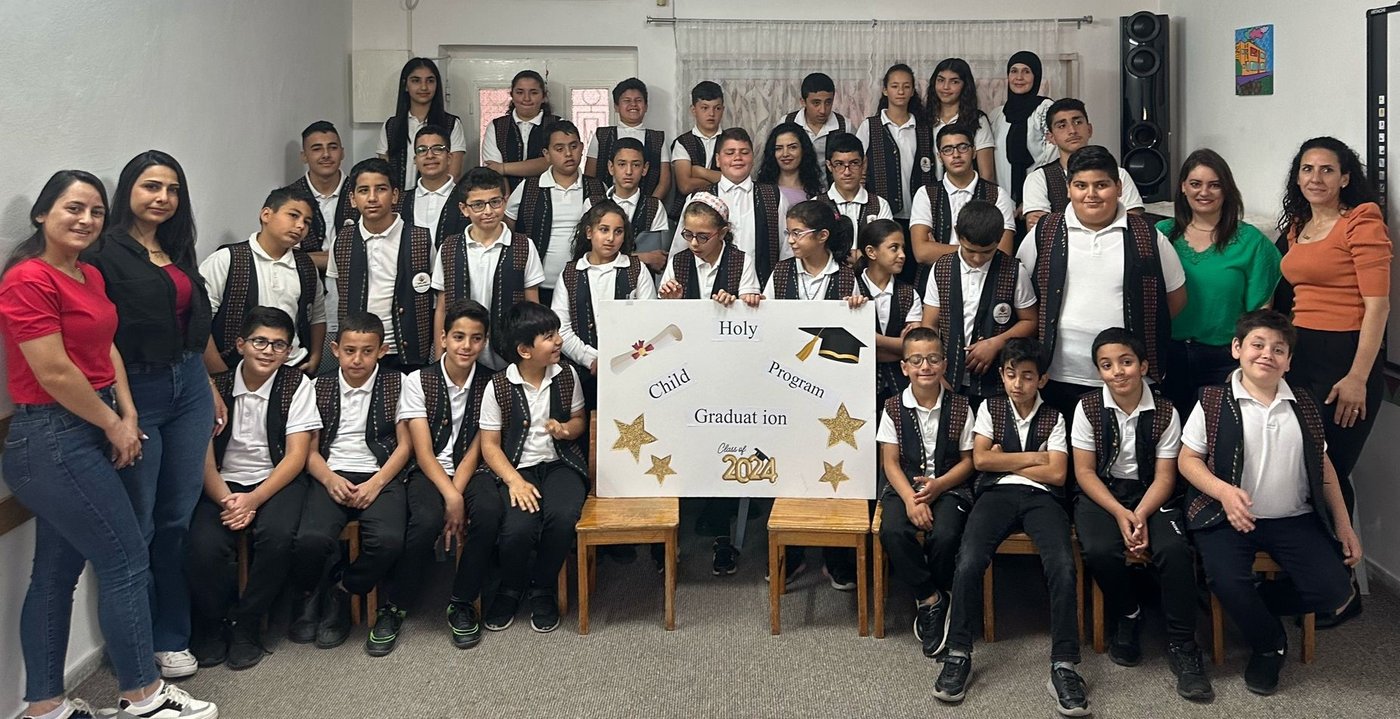
The program is funded by grants, tuition and donations from individuals — including Western Washington Catholics and pilgrims from around the world who have stopped at the school while visiting the nearby Chapel of the Shepherds’ Field Chapel, said Goodrich, the board’s secretary who is involved with fundraising, donor relations and communications.
At least seven parishes in Western Washington have offered pilgrimages to the Holy Land that included a visit to the Holy Child Program, Goodrich said. In June, members of St. Mary Parish in Anacortes raised $16,000 toward the effort to purchase the program’s school building.
“The Holy Spirit has inspired people to give and helped us to be creative,” Goodrich said.
It was also the Holy Spirit, Rzegocki said, who inspired her to leave her job as a mental health supervisor in 2007 and go to Bethlehem to help the school. She and Goodrich were among the apprentices asked to join the transition team as the Franciscan sisters prepared to turn over the school’s operation to the local staff.
“It just kind of came to me during the vigil Mass at Easter,” Rzegocki said. “I should quit my job and go over for a year,” she remembers thinking. “I can’t really be helpful unless I know what it’s like from the ground up.”
Building blocks for peace
For the students, just getting to the Holy Child Program can be a challenge, Rzegocki said.
Many students must climb over barriers to reach the safety of the school, and there’s concern they could be injured or attacked along the way, “so there’s a lot of uncertainty and a lot of anxiety,” Rzegocki explained.
The students have special needs, but Palestine has no designation or teacher training for special education, said Rzegocki, who has more than 25 years of experience as a clinical social worker. So she helped the Holy Child Program adopt, and provided training for, The Incredible Years evidence-based program to give teachers the needed skills.
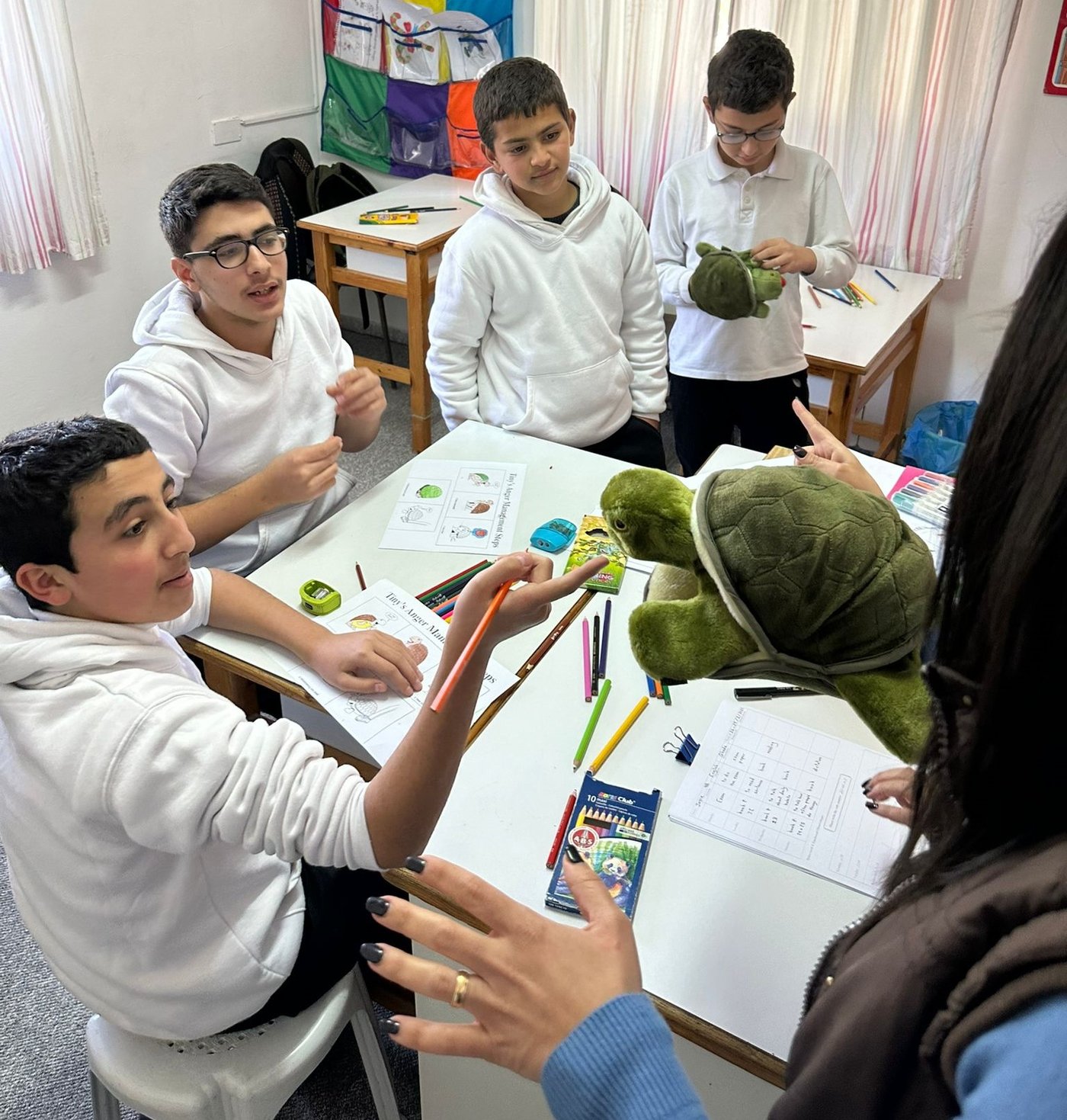
Through the Holy Child Program, children learn social skills, emotion regulation and anger management, as well as academic competence, according to Rzegocki. Catholic beliefs and teachings provide the program’s framework, which includes the students gathering each morning for prayer and singing. Students learn about Christianity, Judaism and Islam — legally, the school must teach the Quran, Rzegocki noted.
The students’ faiths are integrated and respected. For example, during Ramadan, Muslim students who are fasting do special activities during lunch hour and later share what they did with the rest of the students, she said. During Holy Week, the students participate in the Stations of the Cross and the school’s executive director, Iskander Khoury, washes the feet of all the students on Holy Thursday, she said.
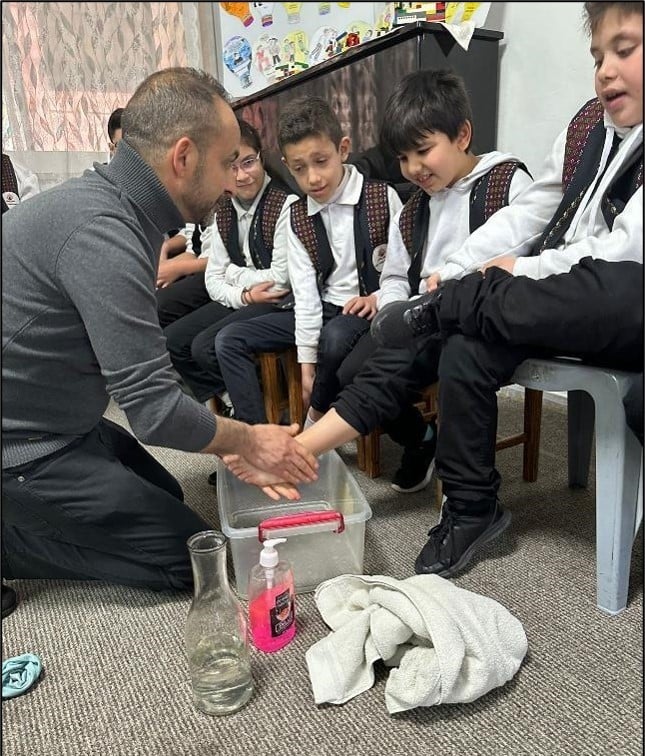
The mother’s group at the school has become a support network for both Christian and Muslim women, Rzegocki said. She tells of one group that arranged care for a mother who was dying of cancer, visiting her every day and arranging her funeral because she had had very little family around.
Rzegocki said Khoury sees these experiences as “building blocks for peaceful interactions” that will continue through the students “who are learning this and experiencing it daily.”
The Holy Child Program, she added, is “an inoculation against terrorism, basically because what we do is antithetical to terrorism.”
The program has a “stellar” reputation, said Goodrich, who has visited twice. Besides the school, the Holy Child Program serves a much larger population of area residents through outreach that includes parent education groups and a summer program. It also provides training for local and international universities and other agencies serving children and families in the region, Rzegocki said.
“I think it’s really powerful because it is evangelization and a really organic relationship between Muslims and Christians,” she said.
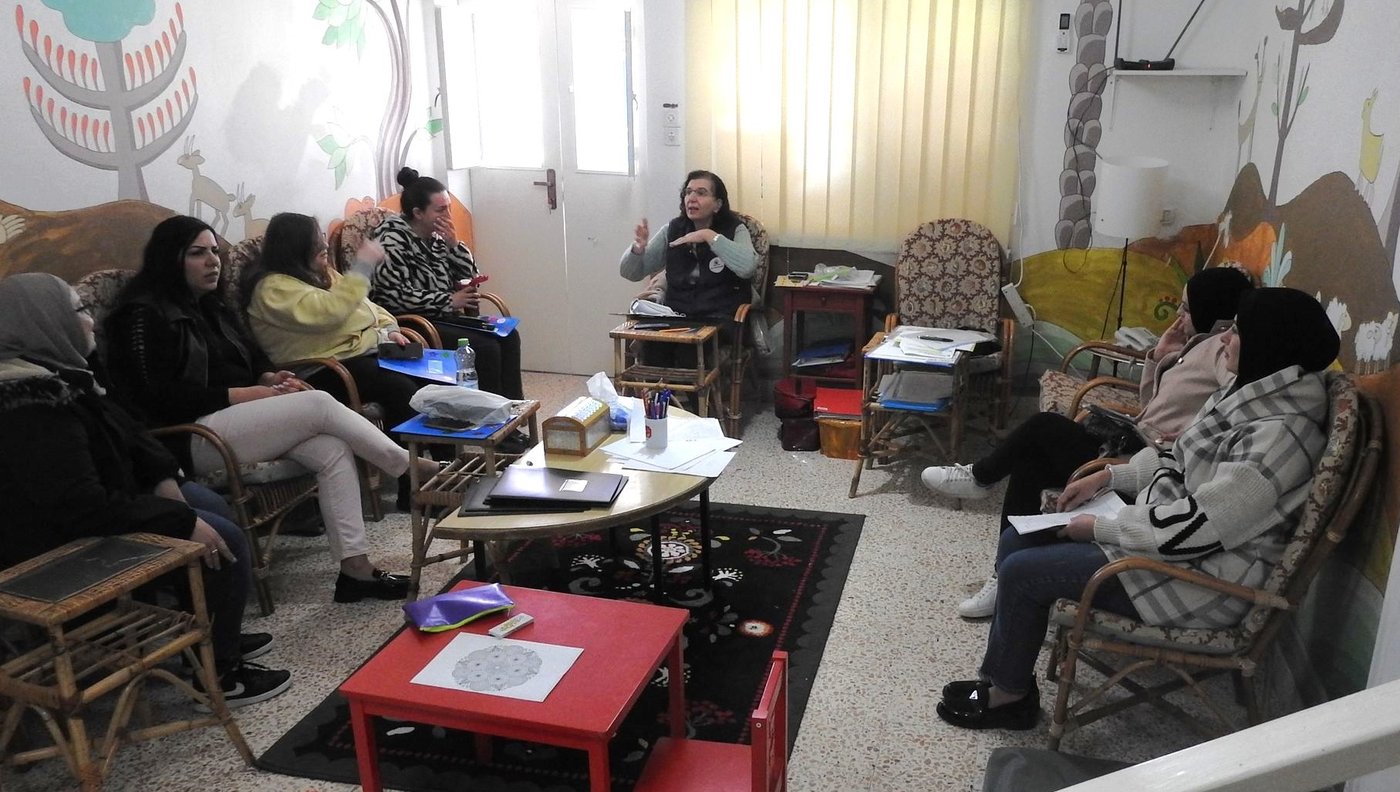
Reflecting Jesus in the world
Rzegocki and her husband have been involved with the Franciscan sisters for 47 years. His mother joined the community of women religious after being widowed and her children were grown. Locally, the Rzegockis helped a small group of the sisters on Shaw Island who operated the ferry terminal and the Little Portion Store there until 2004.
Goodrich said she became familiar with the Franciscan sisters through Rzegocki when their daughters became friends. The families would travel to Shaw Island to help the nuns, and Goodrich became interested in Franciscan spirituality and formation.
“One of the aspects that I responded to was this idea of complementarity between the religious and laypeople, and how we as laypeople go out into the world and reflect both Jesus and the mission” in different ways than the sisters do, Goodrich said.
Rzegocki said she began learning more about the Holy Child Program in 2000, the year she chaperoned a group of local pilgrims to World Youth Day in Rome. They met up with Franciscan sisters who brought a group from Palestine that included a young Catholic man, Khaled Jaraysa, “who eventually came to live with us for 13 years” in the U.S., Rzegocki said.
Jaraysa, who moved back to the Holy Land in 2023, is one of the success stories of the Holy Child Program.
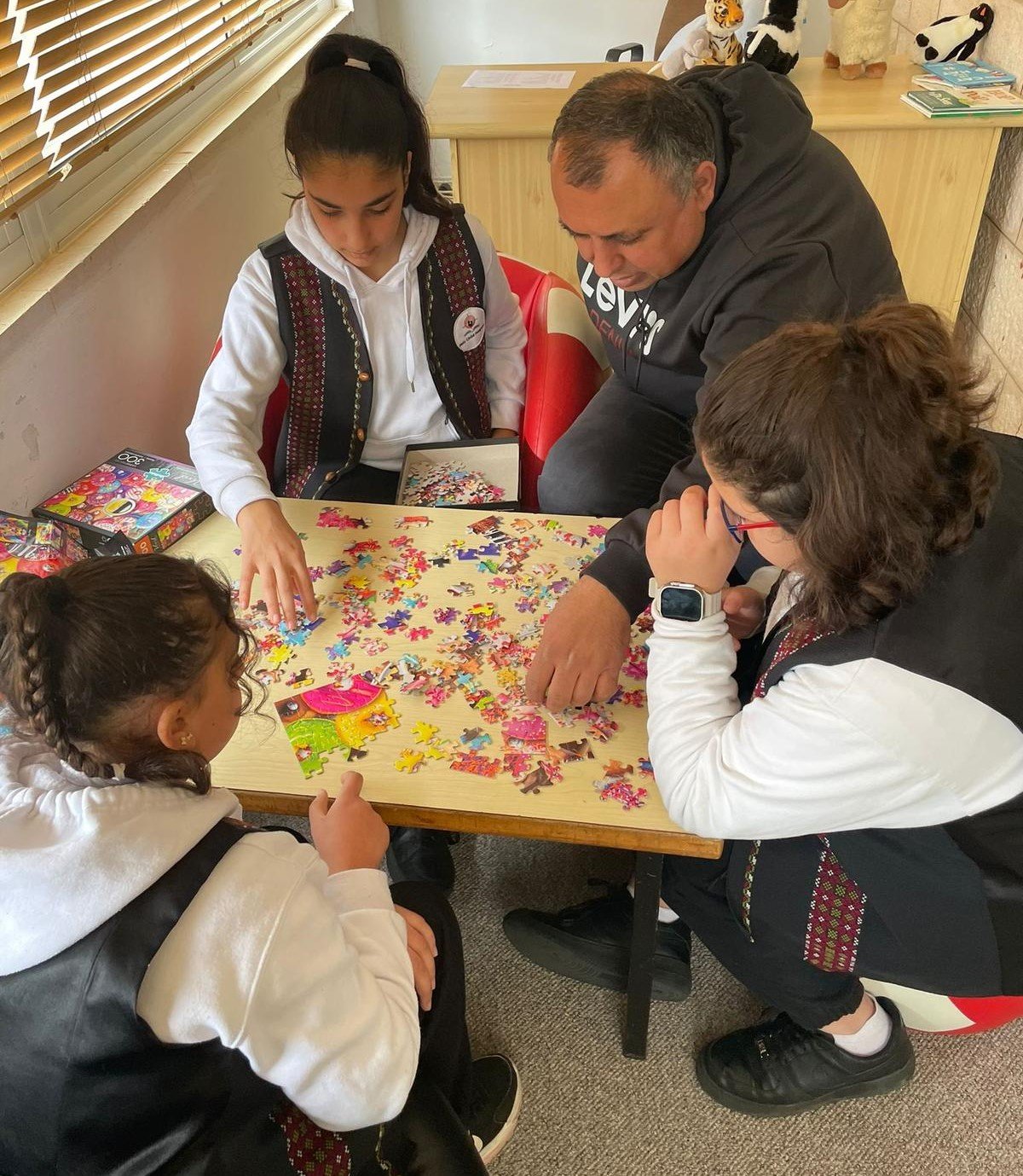
He lost an arm in a machinery accident when he was 13; his father died three years later and he lost many friends to violence, Seattle University recounted when naming Jaraysa Young Alumnus of the Year in 2014. After receiving help from the Holy Child Program, he worked there for five years.
“I am living proof that a traumatized child who receives love, support and encouragement, can once again, achieve wholeness,” Jaraysa, also a Franciscan apprentice, told Seattle University.
“Khaled has proven over the years to be quite a holy person,” Goodrich said, noting that he’s part of the inspiration for her continued commitment to the Holy Child Program. Her work with the school also ties into the Franciscan spirituality of “the little portion,” she said.
“What can I do as one person with my gifts and skills to make a difference? And if I do that faithfully and consistently, then I’m helping to bring about the Kingdom of God,” Goodrich said. “And so that little portion, especially with the Holy Child Program, that is it.”
For Rzegocki, living and volunteering in the Middle East “was not anything in my wildest dreams I would ever have imagined.”
But it’s the most worthwhile thing she has ever done.
“I feel like I’m living my Catholic faith more than I’ve ever been able to before,” Rzegocki said. “It is impacting others and giving them hope.”
Learn more about the Holy Child Program at holychildbethlehem.org.
